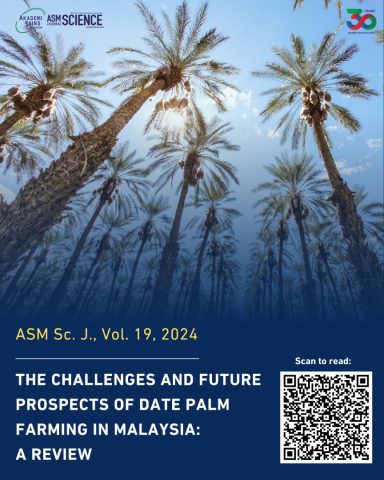
Charting Malaysia’s Education Future: National Education Reform Roundtable
April 22, 2025
ASEAN Plan of Action on Science, Technology, and Innovation (APASTI) 2026-2035 Drafting Workshop
April 22, 2025Malaysia’s agricultural landscape is evolving, and date palm farming is gaining popularity due to its rich nutritional value and health benefits. However, farmers still face challenges in expanding this industry.
A journal paper by A. Mohd Ismail and F.Z. Mohd Yusof explored key obstacles and prospects of date palm cultivation in Malaysia. It highlighted its potential for export and economic growth.
Dates (Phoenix dactylifera L.) are nutritious fruits with high commercial value, especially in the Middle East and North Africa. Malaysia imports large quantities of dates but has growing potential to produce them locally due to a suitable climate and rising demand. Planting efforts in states like Kelantan and Johor show promise, especially for economic growth and export opportunities. With the right soil and care, Malaysia could boost its date industry and reduce import dependence while supporting sustainable agriculture.
Date palm cultivation in Malaysia began in 2010 but remains underdeveloped due to limited experience, unsuitable climate conditions, pest infestations, and lack of research and skilled labour. Despite high demand and heavy reliance on imports, local production is minimal. Challenges include pests like the red palm weevil, excessive rainfall during fruiting, and limited postharvest capabilities. Malaysia must improve farming practices, invest in R&D, train workers, and adopt modern processing and marketing strategies to commercialise the industry, meet international standards and reduce import dependency.
Malaysia is promoting the growth of the date palm industry for food, health, and environmental benefits. With rising demand and heavy reliance on imports, local cultivation is encouraged. Fertile land, government support, and available funding make large-scale farming promising. Good agricultural practices and research centres can improve productivity and quality. Additionally, waqf (charitable) date palm trees offer long-term benefits to society, the environment, and the economy while earning spiritual rewards. The industry has strong potential to support national goals, including food security, sustainability, and community welfare.
With rising demand and strong government support, Malaysia’s date palm industry holds great potential. By improving farming practices, investing in research, and leveraging charitable initiatives like waqf trees, the country can boost local production, reduce imports, and support national goals in food security, sustainability, and economic growth.
Visit the ASM Science Journal website to read the full paper.

